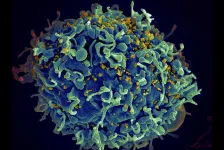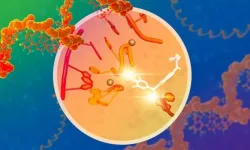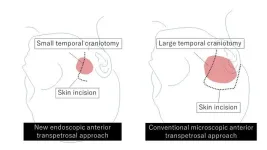(Press-News.org) Whole genome sequencing has improved clinical care of some children with cancer in England by informing individual patient care.
New research from the Wellcome Sanger Institute, Cambridge University Hospitals NHS Trust, Great Ormond Street Hospital, and the University of Cambridge, supports the efforts to provide genome sequencing to all children with cancer and shows how it can improve the management of care in real-time, providing more benefits than all current tests combined.
The study, published today (2 July) in Nature Medicine, is the first time that the impact of using whole genome sequencing in current NHS practice has been assessed.
The team analysed the use of routine genome sequencing, through the NHS Genomic Medicine Service, in two children's cancer centres for solid cancer and leukaemia in England. The researchers found that cancer sequencing gave new insights that improved the immediate clinical care of seven per cent of children, while also providing all the benefits of current standard tests.
Furthermore, in 29 per cent of cases, genome sequencing provided additional information that helped clinicians better understand the tumours of individual children and informed future management. For example, uncovering unexpected mutations that increase future cancer risk leading to preventative measures being taken, such as regular screening.
Overall, whole genome sequencing provides additional, relevant data, about childhood cancer that is useful for informing practice. The results also show that it can reduce the number of tests required, and therefore, researchers suggest it should be provided to all children impacted by cancer.
Whole genome sequencing (WGS) is a single test that provides a complete readout of the entire genetic code of the tumour and identifies every single cancer-causing mutation. Comparatively, traditional standard-of-care tests only look at tiny regions of the cancer genome, and therefore many more tests are often required per child.
Professor Sam Behjati, senior author from the Wellcome Sanger Institute, Cambridge University Hospitals, and the University of Cambridge: “Whole genome sequencing provides the gold standard, most comprehensive and cutting edge view of cancer. What was once a research tool that the Sanger Institute started exploring over a decade ago, has now become a clinical test that I can offer to my patients. This is a powerful example of the genomic data revolution of healthcare that enables us to provide better, individualised care for children with cancer.”
NHS England is one of the few health services in the world that has a national initiative, through the Genomic Medicine Service, offering universal genome sequencing to every child with suspected cancer. However, due to multiple barriers and a lack of evidence from real-time practice supporting its use, whole cancer genome sequencing is not yet widespread practice1.
The latest study, from the Wellcome Sanger Institute, Cambridge University Hospitals NHS Trust, Great Ormond Street Hospital, and the University of Cambridge, looked at 281 children with suspected cancer across two English units where this gold-standard test is provided regularly2.
The team analysed the clinical and diagnostic information across these units and assessed how genome sequencing affected the care of children with cancer.
They found that WGS changed the clinical management in seven per cent of cases, improving care for 20 children, by providing information that is not possible to acquire from standard of care tests.
Additionally, WGS faithfully reproduced every one of the 738 standard of care tests utilised in these 281 cases, suggesting that a single WGS test could replace the multiple tests that the NHS currently uses if this is shown to be economically viable.
WGS provides a detailed insight into rare cancers, for example, by revealing novel variants of cancer. The widespread use of genome sequencing will enable clinicians to access these insights for individual patients while simultaneously building a powerful shared genomic resource for research into new treatment targets, possible prevention strategies, and the origins of cancer.
Dr Jack Bartram, senior author from Great Ormond Street Hospital NHS Foundation Trust and the North Thames Genomic Medicine Service, said: “Childhood cancer treatment is mostly guided by genetic features of the tumour, and therefore an in-depth genetic understanding of cancer is crucial in guiding our practice. Our research shows that whole genome sequencing delivers tangible benefits above existing tests, providing better care for our patients. We hope this research really highlights why whole genome sequencing should be delivered as part of routine clinical care to all children with suspected cancer.”
Eddie’s story
When he was six-years old, Eddie began to have regular low-grade fevers that seemed to affect him a lot. Even though early tests came back normal, the fevers became more frequent and his Mum, Harri, noticed that on one or two occasions he seemed out of breath while doing small things like reading a book. A chest x-ray revealed a huge mass on Eddie’s chest, and he was diagnosed with T-cell acute lymphoblastic leukemia (T-ALL). Eddie was immediately transferred to Great Ormond Street Hospital (GOSH) to begin treatment.
“I know it sounds like a cliché, but you really don’t think it will ever happen to your child. It felt like our world fell out from under us. During those first few weeks I remember wondering if this was it, I was taking so many photos of us together and wondering if it could be the last.” Said Harri, Eddie's mum.
Eddie was put onto a treatment plan that included eight months of intense chemotherapy, followed by two and a half years of maintenance treatment. As part of his treatment at GOSH Eddie’s family were also offered WGS to identify any cancer-causing changes.
“When we were offered whole genome sequencing, we didn’t even hesitate. I wanted to have all the information, I wanted to have some peace of mind for the future and know that Eddie was having the right care throughout. I also wanted to make sure that Eddie’s brother, Leo, wasn’t any more likely to get T-ALL because Eddie had.” Said Harri, Eddie's mum.
On his seventh birthday, Eddie’s family received the call to say he was in remission. Now, at nine years-old Eddie is nearing the end of his maintenance treatment and is doing well.
“We are trying to live each day, and this experience has really changed our outlook on life. We always try to take the positive from every situation. Words can’t explain what Eddie has been through this past three years but he has come out the other side as a sensitive, confident, and smart young man. He is mature beyond his years and he has been involved in everything, including decisions about his treatment. To say we are proud, doesn’t even come close to how we truly feel about him.” Said Harri.
Their personal experience of WGS was so important on their journey that they provided support for this research.
“I always say that having a child with a cancer diagnosis feels like you’ve been standing on a trap door all these years without knowing. Then after the diagnosis, you are in freefall. And even when things are stable again, you are constantly aware that the trap door is still there and there is a possibility it could open again at any time. Having access to whole genome sequencing gave us some sense of reassurance, it could have informed us about targeted treatments and gave us some insight into future risk. We wanted to support something that had the potential to have a real impact on treatment and outcomes so when we heard about this research project and its potential, it was very exciting that we could be a small part of it. It helped us turn something so devastating into something positive and we just hope that this research helps.” Said Harri.
Photos available on request.
ENDS
Contact details:
Rachael Smith
07827979492 / 07748379849
Press Office
Wellcome Sanger Institute
Cambridge, CB10 1SA
Email: press.office@sanger.ac.uk
Notes to Editors:
The team would like to thank the children and families who participated in this study. The research would not have been possible without them.
More examples of children who have benefitted from WGS include baby Oliver, whose tumour was found to be benign by WGS. Along with Aubrey, where WGS confirmed a cancer diagnosis and enabled doctors to identify in more detail the best treatment.
Past studies have also focused on selective patient groups, and it was not clear whether incorporating WGS into routine clinical practice can provide benefits to all children with cancer.
At Cambridge University Hospitals, WGS tests are given to all children with solid tumours, and Great Ormond Street Hospital provides the test for childhood leukaemia.
Publication: A. Hodder, S. Leiter, J. Kennedy, et al. (2024) Benefits for children with suspected cancer from routine whole genome sequencing. Nature Medicine. DOI: 10.1038/s41591-024-03056-w
Funding: This research was supported in part by Wellcome, the Pessoa de Araujo family and the NIHR. A full acknowledgment list can be found on the publication.
Selected websites:
About Research at Great Ormond Street Hospital
Great Ormond Street Hospital is one of the world’s leading children’s hospitals with the broadest range of dedicated, children’s healthcare specialists under one roof in the UK. The hospital’s pioneering research and treatment gives hope to children from across the UK with the rarest, most complex and often life-threatening conditions. Our patients and families are central to everything we do – from the moment they come through the door and for as long as they need us. All research at Great Ormond Street Hospital NHS Foundation Trust is made possible by the National Institute for Health and Care Research Great Ormond Street Hospital Biomedical Research Centre.
About Cambridge University Hospitals
Cambridge University Hospitals NHS Foundation Trust (CUH) is one of the largest and best known trusts in the country, delivering high-quality patient care through Addenbrooke’s and the Rosie Hospitals. CUH is a leading national centre for specialist treatment for rare or complex conditions and a university teaching hospital with a worldwide reputation.
CUH is a key partner in Cambridge University Health Partners (CUHP), one of only eight academic health science centres in the UK, and is at the heart of the development of the Cambridge Biomedical Campus (CBC), which brings together on one site a range of organisations involved in world-class biomedical research, patient care and education. The Campus hosts the National Institute for Health and Care Research (NIHR) Cambridge Biomedical Research Centre.
Cambridge Children’s Hospital:
Cambridge Children’s Hospital will be the first specialist children’s hospital for the East of England, the only region in the UK without one. The hospital will fully integrate physical and mental healthcare services under one roof to provide a whole new way of caring for children and young people aged 0-19, including those with cancer. Housing University of Cambridge research institutes focused on the prevention and early diagnosis of disease, the hospital will deliver game-changing advances in life sciences research.
The hospital will be built on Europe’s leading life sciences campus, the Cambridge Biomedical Campus, and is being co-designed with the help of young people, families and healthcare professionals. Established by Cambridge University Hospitals NHS Foundation Trust, Cambridgeshire and Peterborough NHS Foundation Trust and the University of Cambridge, the hospital is a partnership which brings together clinical expertise and world-leading knowledge. www.cambridgechildrens.org.uk
The Wellcome Sanger Institute
The Wellcome Sanger Institute is a world leader in genomics research. We apply and explore genomic technologies at scale to advance understanding of biology and improve health. Making discoveries not easily made elsewhere, our research delivers insights across health, disease, evolution and pathogen biology. We are open and collaborative; our data, results, tools, technologies and training are freely shared across the globe to advance science.
Funded by Wellcome, we have the freedom to think long-term and push the boundaries of genomics. We take on the challenges of applying our research to the real world, where we aim to bring benefit to people and society.
Find out more at www.sanger.ac.uk or follow us on Twitter, Instagram, Facebook, LinkedIn and on our Blog.
About Wellcome
Wellcome supports science to solve the urgent health challenges facing everyone. We support discovery research into life, health and wellbeing, and we’re taking on three worldwide health challenges: mental health, infectious disease and climate and health. https://wellcome.org/
END
Cutting-edge genomic test can improve care of children with cancer
2024-07-02
ELSE PRESS RELEASES FROM THIS DATE:
Drugs that kill "zombie" cells may benefit some older women, but not all, Mayo Clinic study finds
2024-07-02
ROCHESTER, Minn. — Drugs that selectively kill senescent cells may benefit otherwise healthy older women but are not a "one-size-fits-all" remedy, Mayo Clinic researchers have found. Specifically, these drugs may only benefit people with a high number of senescent cells, according to findings publishing July 2 in Nature Medicine.
Senescent cells are malfunctioning cells in the body that lapse into a state of dormancy. These cells, also known as "zombie cells," can't divide but can drive chronic inflammation and tissue dysfunction linked to aging and chronic ...
New lab test to detect persistent HIV strains in Africa may aid search for cure
2024-07-02
New Lab Test to Detect Persistent HIV Strains in Africa May Aid Search for Cure
A multinational team led by Weill Cornell Medicine investigators developed a test that will help measure the persistence of HIV in people affected by viral strains found predominantly in Africa—a vital tool in the search for an HIV cure that will benefit patients around the world.
The study, published in Nature Communications on July 2, helps fill a major gap in human immunodeficiency virus (HIV) research. Most HIV studies have focused on strains circulating in Western countries, predominantly ...
RecombinHunt: predicting new pandemics through data analysis
2024-07-02
Milan, July 2, 2024 - Combating future pandemics through data analysis of recombinant virus genomes. A study published in the prestigious journal Nature Communication presents the promising results of RecombinHunt, a new data-driven method developed by the Department of Electronics, Information and Bioengineering of the Politecnico di Milano and the University of Milan, which can identify, with high accuracy and computational efficiency, recombinant SARS-CoV-2 genomes with one or two breakpoints.
Recombination, that is, the composition of two or more viral genomes to form a new genome, is an efficient molecular mechanism ...
A new breakthrough in understanding regeneration in a marine worm
2024-07-02
The sea worm Platynereis dumerilii is only a few centimetres long but has a remarkable ability: in just a few days, it can regenerate entire parts of its body after an injury or amputation. By focusing more specifically on the mechanisms at play in the regeneration of this worm’s tail, a research team led by a CNRS scientist1 has observed that gut cells play a role in the regeneration of the intestine as well as other tissues such as muscle and epidermis. Even more surprising, the team found that this ability of gut cells to regenerate other tissue varies according to their location: the closer they are to the posterior end of the ...
New molecules to modulate gene expression
2024-07-02
Genoa (Italy)/Grenoble (France) – 2nd July, 2024 - The correct functioning of cells relies heavily on the ability to finely control gene expression, a complex process by which the information contained in DNA is copied into RNA to eventually give rise to all the proteins and most of the regulatory molecules in the cell. If DNA can be imagined as a dense technical manual, gene expression is the method by which the cell extracts useful information from it.
Researchers at the Istituto Italiano di Tecnologia (IIT) in Genoa and the European Molecular Biology Laboratory (EMBL) in ...
Study shows hairy skin does not become less sensitive with age
2024-07-02
Like most primates, humans are remarkably touchy-feely. Starved of touch, we release more of the stress hormone cortisol, which causes the immune system to be down-regulated and the heart rate and blood pressure to go up. On the other hand, touch causes the brain to be flooded by natural opioids, the ‘bonding hormone’ oxytocin, and the ‘feel-good’ neurotransmitters dopamine and serotonin.
It is generally assumed that our sense of touch worsens with age, just like our vision and sense of hearing. However, new results are good news for those who wished they could stave off age-related decline forever: they show for the first time that a deterioration ...
Safer, swifter, smaller scar: new brain surgery approach targets difficult tumors at skull base
2024-07-02
Tumors arising in the base of the skull are among the most difficult to remove in neurosurgery. The current treatment method is to perform surgical removal by what is known as the microscopic anterior transpetrosal approach (ATPA). Seeking to lessen the risk of damage and postoperative complications, as the skull base is densely packed with nerves, blood vessels, and other tissues, not to mention the brain stem, an Osaka Metropolitan University medical research team is taking a new approach.
Led by Dr. Hiroki Morisako, a lecturer in ...
Barriers to care: transgender and gender-diverse peoples’ health care experiences
2024-07-02
Transgender, nonbinary, and gender-diverse people face barriers to accessing surgery and to the health system in general, describe authors in two new research papers published in CMAJ (Canadian Medical Association Journal).
In many areas of life, people who identify as transgender, nonbinary, and gender diverse experience discrimination even where there are laws to protect transgender human rights. Health systems also pose barriers for transgender, nonbinary, and gender-diverse people, who are more likely to delay obtaining ...
Study explores what motivates people to watch footage of disasters and extreme weather
2024-07-02
Extreme weather events such as hurricanes and storms have increased in both frequency and severity in recent years.
With that has come heightened public interest, resulting in often dramatic footage being live-streamed on platforms such as YouTube, TikTok and Discord.
Now, a new study conducted at the University of Plymouth has for the first time analysed what might be motivating people to watch these streams – in some instances for up to 12 hours at a time.
The research centred around the live-streaming ...
Ocean acidification turns fish off coral reefs
2024-07-02
A new study of coral reefs in Papua New Guinea shows ocean acidification simplifies coral structure, making crucial habitat less appealing to certain fish species.
While much media attention has focused on heat stress-induced coral bleaching, this finding, by a University of Adelaide research team led by Professor Ivan Nagelkerken, adds nuance to concerns about how global warming affects coral reefs.
Ocean acidification is caused by an increase in the level of carbon dioxide in oceanwater, leading to a reduction in pH. This makes calcium carbonate less available in the ocean, which corals use to build and repair their skeleton.
Professor Nagelkerken and ...





